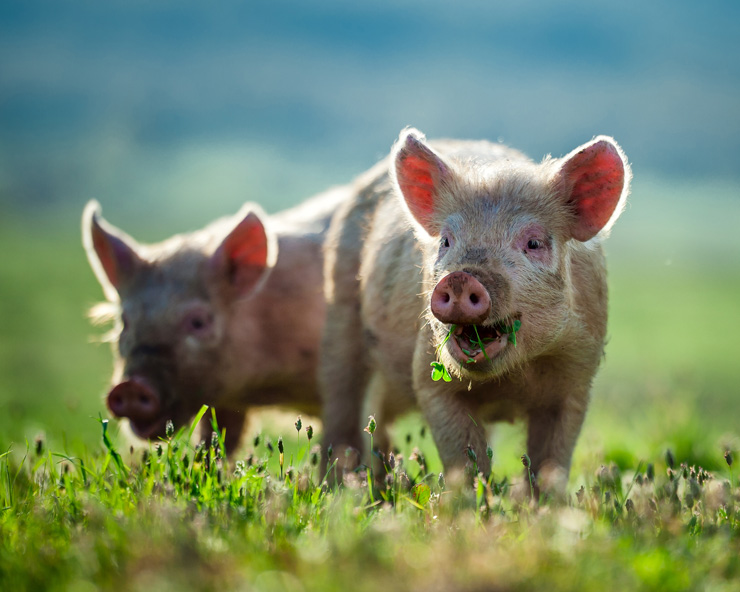Good nutrition is vital to keeping your livestock healthy and happy. Good nutrition directly impacts body condition score, fertility, and milk or egg productivity. A healthy diet also contributes to the ability of your livestock’s immune system to fight disease. Keep in mind your species, age, and health needs. Your climate is a factor too. Your animals will need more calories during the winter than during the summer months. Protein is another critical portion of the diet. Having enough protein is vital for building muscles and STRONG immune systems.
Nutrition can seem overwhelming. Working with a nutritionist familiar with organic and alternative operations is a great place to begin. Working with someone who understands your local area is also helpful. Knowing what nutrients are in your soil and forages and what supplements neighboring farms use to make up for any deficiencies is also valuable information.
Nutritionists may suggest having your pastures and soil analyzed. That way you know what you might need to do in the way of micronutrient supplementation for your livestock. Some important micronutrients include cobalt, zinc, iodine, manganese, iron, copper, and selenium.
Make sure you provide easy access to clean water. Water is often the last thing that crosses the producer’s mind when thinking about nutrition. But it is the most essential nutrient an animal can receive. Animals must always have access to clean, fresh water. This may mean scrubbing tanks in the summer when algae forms or chipping ice off in the winter when it gets cold. Providing a heated water tank in the winter often entices animals to drink more, preventing problems that arise due to dehydration.
Resources:
Oregon Tilth-Feed and Supplements for Organic Livestock
ATTRA-Small Scale Livestock Production
ATTRA-Managing Internal Parasites: Success Stories
SDSU Extension-Cow Mineral Nutrition: Trace Minerals and Managing Interactions


How many nutritionists know that 95% of all Iowa soils are low in Mo? 4 of our local feedstores have been and are presently adding 1/2#/ton of NaMolybdenate (2000ppm Mo) to wean to finish and sow feed; (If more agronomists catch up including agribusiness people at our Land Grants, we will not have to keep doing this and yes too much is definitely no good and you have to know S and Cu++ levels as well. Mo is absorbed better at high soil Ph unlike the cations and it is the cofactor for nitrate reductase which legumes need in their nodules to fix N and corn needs it too to make protein. Bacteria in the oral cavities of pigs and humans use it to reduce NO3 to NO2 and the next step to NO provides about 5-10% of the NO that shuts the pylorus. If protein either viral, bacterial or food stays in the stomach longer it is broken down better by the HCl and pepsin so less infectious dose and less bloody bowel due to fermentation of complete proteins. So far the NaMolybdenate is cheap since glyphosate in most diets is ” preventing” Cu++ poisoning in sheep and goats and the bags are sitting around collecting dust. Mix well and carefully and enjoy the results!! Art Dunham DVM P. S. No mention of mycotoxins.